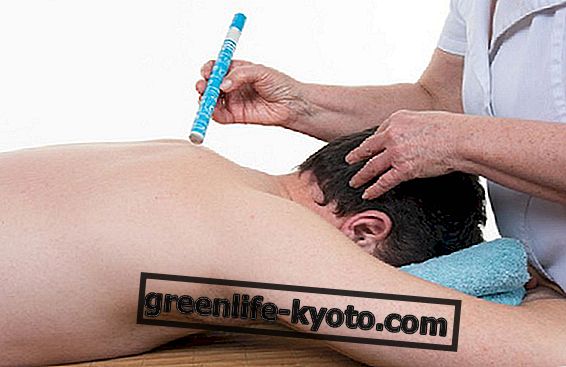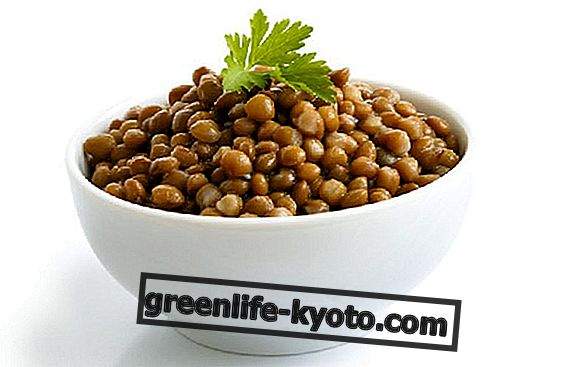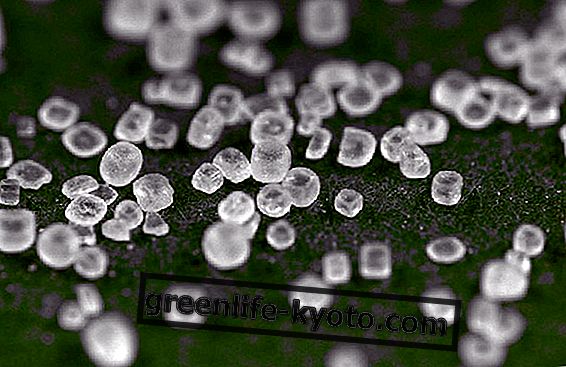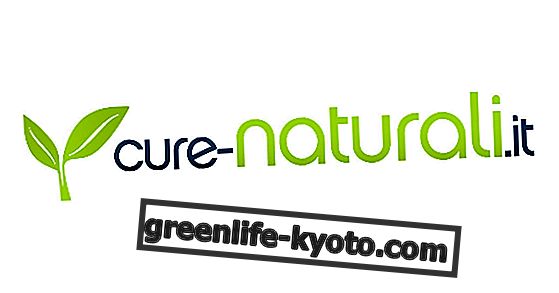
If you are lucky enough to share your home with a four-legged friend, surely you will have to worry about your health or well-being, because you noticed on some occasion that something was not going well.
My dog is a nice Bernese Mountain Dog, a lively and clever teddy bear, but like all animals he does not communicate in words and when he is not well he makes himself understood, but he cannot tell me exactly what is wrong.
And it is precisely in these circumstances that an alternative frequency channel must be opened in order to interact more empathically.
I don't know if it also happens to yours, but when my dog is not well he isolates himself, doesn't eat, doesn't play, he waits to be cuddled and hugged and on that occasion he begins to "talk with his eyes".
And there we must be the one to interpret and act as an intermediary with the veterinarian, reporting the greatest number of possible symptoms.
The feeding of our dogs
Even with our dog we must first of all work in the field of prevention, to ensure the greatest possible welfare.
The correct and balanced diet is the first tool at our disposal : it is important to feed the dog in a targeted manner, with specific foods, not the leftovers of our table and even home-cooked lunches, especially for large dogs with bone development and fast and heavy muscle.
In the market there is really everything, excellent and of poor quality and not always "who spends the least spends", as they say, because a few years ago an investigation had emerged on some "brand" feeds containing substances carcinogenic. So let's document carefully and choose safe certified food brands.
Then we learn to differentiate summer food from winter food : our dogs change their coat seasonally, and have different thermoregulation needs in winter and summer: high-protein foods in the summer can be excessive, we notice if our friend's coat becomes reddish and if the vivacity is excessively sedated.
In a young and healthy adult subject, nutrition with balanced feed is sufficient: they are usually rich in all the nutrients they need. We verify that they contain not only meat or fish but also cereals, potatoes, carrots, vitamins, calcium, and zinc.
For those who are convinced that it is healthier to cook their dog's meal at home, it is important to use animal supplements . They are found in specialized shops and are generally in the form of powders to be mixed with the meal: rich in B vitamins, vitamin D, calcium, amino acids.
It is important to stick to the recommended daily dosages related to the weight of the dog. In any case, I advise you to avoid this solution in the development phase of the dog, because bones and muscles need correct contributions.
Years ago I owned a newfoundland and as a young “Taliban” naturopath I was convinced that the cucciolone would have been better with a home-made diet, made of fresh foods, rich in vegetables, carbohydrates and proteins cooked with my little hands: the bestione in the sixth month his front legs were slightly crooked. The vet rebuked me and prescribed a calcium-rich feed to which I could add some capsules to favor the bone density with which we corrected the posture !!!!
Vitamin B supplements for our dogs
We can make an exception to the rule and integrate an important group of vitamins to safeguard the welfare of our dog. Group B can help us in certain moments of the life of our four-legged friend . The critical issues may arise:
- in summer, when due to the heat fatigue and inappetence take over,
- during pregnancy and lactation, when the hairy mother needs more help to endure gestation and breastfeeding,
- at the first signs of aging, when our friend starts to slow down, to sleep a lot, and to tire easily,
- if our dog is a sportsman and takes care of water rescue or is dedicated to agility.
We can integrate the B group vitamin through specially formulated capsules for dogs and cats, with a weight-calibrated dosage, or add foods containing these important nutrients, such as beef liver, chicken, salmon, tuna, eggs, nuts, brewer's yeast, potatoes, pork.
What are the B vitamins for our dogs?
What functions do B vitamins exert on our four-legged friend's body?
- Thiamine or vitamin B1 : it is interested in the metabolism of carbohydrates, in the metabolic transformation of food into energy. In case of vitamin B1 deficiency we can see weight loss, weakness, loss of appetite to anorexia, hypothermia
- Riboflavin or vitamin B2 : essential for cellular development, muscle formation and mucous membranes of our friend. In case of deficiency, forms of inflammation may occur in the mouth, in the eyes, difficulties in growth.
- Niacin or vitamin B3 : supports the dog in case of hyperactivity, sports performance, fights tiredness. Excessive fatigue may occur in the event of vitamin B3 deficiency.
- Pantothenic acid or vitamin B5 : useful for obtaining the correct energy intake from foods and to promote mental prowess. In the event of vitamin B5 deficiency, episodes of nervousness, sleep disturbances and instability may occur.
- Pyridoxine or vitamin B6 : it is useful for the synthesis of serotonin, hemoglobin, and globulins. The lack of this vitamin is very rare and leads to loss of appetite, fatigue, diarrhea.
- Folic acid or vitamin B9 : indispensable for the formation of blood, for the immune system, and the formation of amino acid chains.
- Cyanocobalamin or vitamin B12 : participates in the formation of red blood cells, supports the functions of the Central Nervous System, fights fatigue. Also in this case it is rare to see a lack of vitamin B12 in dogs. It may happen if a vegetarian diet has been adopted, but we hope that this does not happen with our pets.












